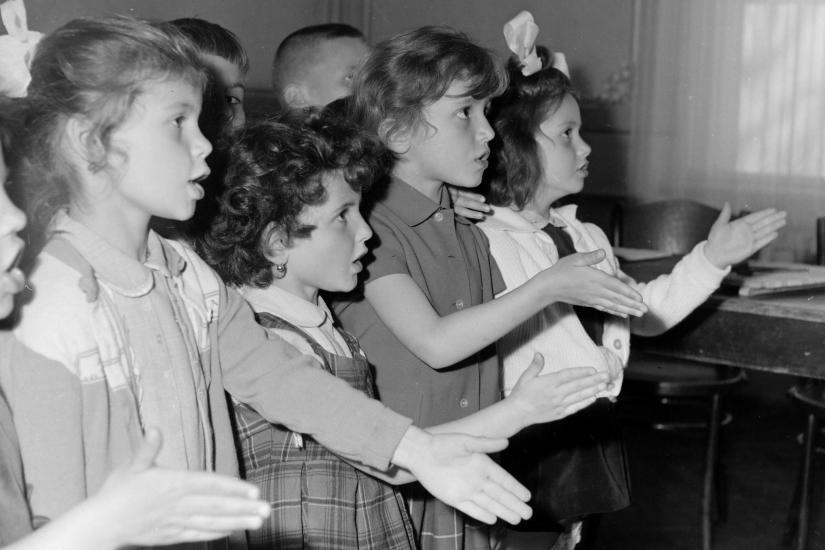
The lecture will explore the transnational history of the Kodály-method for teaching music in Hungary and the US during the 1960s-70s. Starting from the credo: “Music should belong to everyone!”, the Hungarian composer and musicologist Zoltán Kodály (1882-1967) conceived of a novel approach to music education and ignited an international movement to reform the field. Kodály’s utopian vision was to democratize the access to and the experience of music through achieving universal musical literacy. Music teaching based on his ideas was implemented in Hungary after 1945, eventually generating worldwide attention by the 1960s, especially among pedagogues in the US. The presentation will examine how the collaboration of Hungarian and American women music teachers bridged the geopolitical divides of the Cold War period and produced an identifiable global brand for the Kodály-method.
Image: School children learning music through the Kodály-method in 1962. Source: Fortepan: 135793 (The photograph was donated to the Fortepan collection by the András Sütő family)